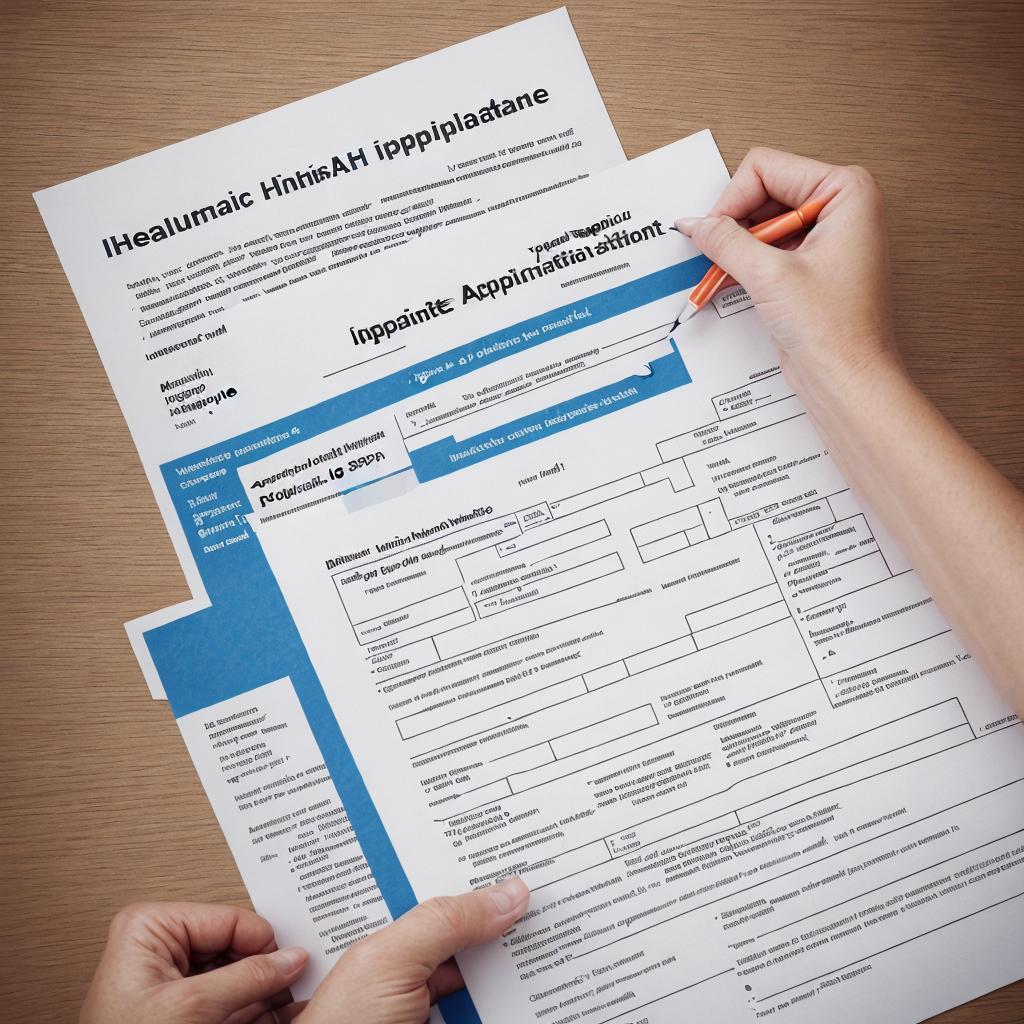What Are Typical Health Insurance Application Errors?

So, you’re ready to apply for health insurance, but before you dive into the process, it’s important to know about the typical errors people make.
Don’t worry, we’ve got you covered. In this article, we’ll walk you through the most common mistakes that can trip you up during the application process.
From inaccurate personal information to failing to disclose pre-existing conditions, we’ll help you navigate the potential pitfalls and ensure a smooth application experience.
Let’s get started!
Key Takeaways
- Double-check personal information to avoid inaccuracies and ensure prompt communication with the insurance company.
- Disclose all pre-existing conditions to prevent coverage complications and potential denial of coverage.
- Provide a complete and accurate medical history to avoid misunderstandings and potential denial of coverage for related treatments.
- Accurately report income and provide supporting documentation to avoid eligibility issues and potential audits or penalties.
Inaccurate Personal Information
You should double-check your address and phone number to avoid any inaccurate personal information on your health insurance application. Providing your correct contact details is crucial for the insurance company to reach out to you if needed. It also ensures that you receive important updates about your coverage and claims. Make sure to provide your current residential address, as any discrepancies can lead to delays in receiving your insurance card or important documents.
In addition to your address and phone number, you should also review and verify other personal information on your health insurance application. This includes your full name, date of birth, and social security number. Mistakes in these details can cause issues with your coverage and claims processing.
When filling out your application, it’s important to be accurate and truthful. Any false or misleading information can result in a denial of coverage or even legal consequences. Take the time to carefully review your application before submitting it, ensuring that all the information provided is correct and up to date.
Failure to Disclose Pre-existing Conditions
One common mistake is failing to disclose any pre-existing conditions on your health insurance application, which can lead to complications in your coverage. It’s important to remember that honesty is key when filling out your health insurance application.
Many people may be tempted to hide their pre-existing conditions in order to secure lower premiums or better coverage, but this can have serious consequences down the line. Insurance companies require you to disclose any pre-existing conditions because they need to assess the level of risk they’re taking on by insuring you.
By failing to disclose your pre-existing conditions, you’re essentially providing false information, which can result in your coverage being denied or even revoked. Furthermore, if the insurance company finds out about your undisclosed conditions later on, they may refuse to cover any related medical expenses, leaving you to bear the financial burden.
Additionally, it’s worth noting that not all pre-existing conditions automatically disqualify you from obtaining health insurance. Insurance companies consider various factors when evaluating your application, such as the severity of the condition, your treatment plan, and your overall health.
It’s better to be upfront about your pre-existing conditions and let the insurance company make an informed decision rather than risk being caught in a web of complications and potential legal issues. Honesty is always the best policy when it comes to disclosing pre-existing conditions on your health insurance application.
Misspelled or Incomplete Medical History
Failing to provide a complete or accurate medical history can result in complications with your health insurance application. It is crucial to ensure that all the information you provide regarding your medical history is spelled correctly and complete. Misspelled or incomplete medical history can lead to misunderstandings and potential denial of coverage.
To highlight the importance of accuracy in your medical history, let’s take a look at the following table:
| Misspelled/Incomplete Medical History | Consequences |
|---|---|
| Misspelled diagnosis | Misunderstood medical conditions and potential denial of coverage |
| Incomplete surgeries history | Inadequate coverage for surgical procedures |
| Misspelled medication names | Incorrect medication coverage and potential drug interactions |
| Incomplete family medical history | Lack of coverage for hereditary conditions |
| Misspelled doctor’s name | Difficulties in verifying medical information |
As you can see, any mistakes or omissions in your medical history can have serious consequences for your health insurance application. It is essential to double-check and ensure that all the information provided is accurate and complete.
Now, let’s move on to discussing the next common mistake in health insurance applications: incorrect income reporting.
Incorrect Income Reporting
Don’t make the mistake of underestimating your income when reporting it on your health insurance application. Providing incorrect income information can have significant consequences and may lead to issues with your coverage. It’s important to accurately report your income to ensure that you qualify for the appropriate subsidies and benefits.
When reporting your income, be sure to include all sources of income, such as wages, self-employment earnings, rental income, and any other income you receive. Underestimating your income can result in being ineligible for certain subsidies or benefits, which could significantly impact your ability to afford health insurance.
In addition, providing inaccurate income information may also trigger an audit by the insurance company or government agencies. This can lead to additional scrutiny and potential penalties if it’s discovered that you purposely misrepresented your income.
To avoid these problems, take the time to carefully review your financial records and accurately report your income on your health insurance application. Double-check all figures and provide supporting documentation, such as pay stubs or tax returns, if required.
Failing to provide the necessary supporting documentation can also lead to complications with your application. Therefore, it’s crucial to have all the required documents ready and available when completing your health insurance application.
Lack of Supporting Documentation
Make sure you include all the necessary supporting documentation when submitting your health insurance application. Providing complete and accurate documentation is essential to ensure that your application is processed smoothly and in a timely manner.
Here are four key items you should include:
- Identification documents: Include a copy of your valid government-issued identification, such as a driver’s license or passport. This helps verify your identity and ensures that the insurance company has accurate information.
- Proof of address: Submit a recent utility bill or lease agreement that clearly shows your current address. This document is important for confirming your residency and eligibility for certain coverage options.
- Proof of income: Include documentation that supports your reported income, such as recent pay stubs, tax returns, or bank statements. This helps the insurance company calculate your eligibility for subsidies or discounts based on your income level.
- Proof of dependents: If you’re including dependents in your application, provide the necessary documentation to verify their relationship to you. This may include birth certificates, adoption papers, or marriage certificates.
Frequently Asked Questions
What Are Some Consequences of Providing Inaccurate Personal Information in a Health Insurance Application?
Providing inaccurate personal information in a health insurance application can have serious consequences. It may result in denial of coverage or claims, higher premiums, and even legal repercussions. So it’s crucial to be honest and accurate when filling out your application.
Are There Any Specific Types of Pre-Existing Conditions That Must Be Disclosed in a Health Insurance Application?
You should disclose any pre-existing conditions on your health insurance application. Failing to do so could result in your claim being denied or your policy being cancelled. It’s important to be honest and upfront about your medical history.
How Can Misspelled or Incomplete Medical History Affect the Processing of a Health Insurance Application?
Misspelled or incomplete medical history can delay or even result in denial of your health insurance application. It’s crucial to provide accurate and detailed information to ensure smooth processing and avoid any complications.
Can Incorrect Income Reporting Result in Denial of Health Insurance Coverage?
Incorrect income reporting can result in denial of health insurance coverage. Make sure to accurately report your income to avoid any potential issues with your application and ensure you receive the coverage you need.
What Types of Supporting Documentation Are Typically Required When Submitting a Health Insurance Application?
When applying for health insurance, it’s important to provide the necessary supporting documentation. This helps ensure accuracy and expedite the application process. Common mistakes can lead to delays or denial of coverage.



